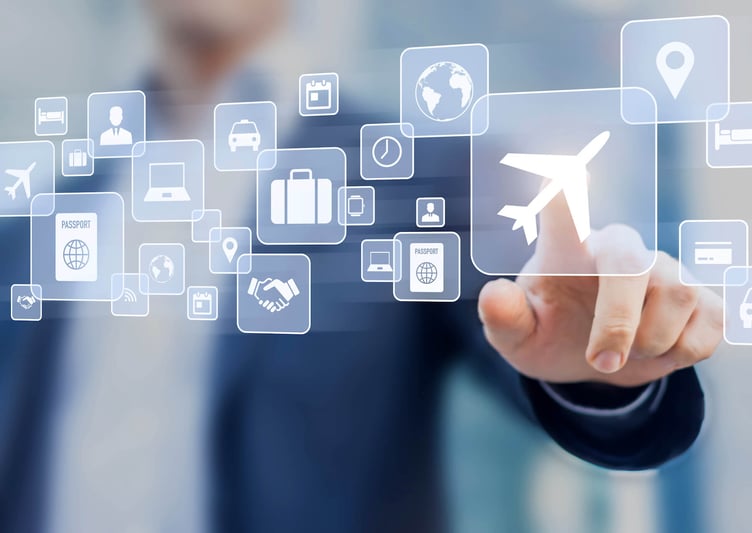
The global pandemic has flipped the world of business travel on its head. Where hopping on a plane for an in-person meeting was once considered commonplace, the modern business landscape has morphed into a space where virtual interactions are the new normal. Companies are now in the process of reevaluating their travel strategies, placing a keen emphasis on elements such as safety, efficiency, and sustainability. This blog post delves into the heart of this paradigm shift and dissects how businesses are adapting to the drastically changing landscape of business travel.
The Impact of COVID-19 on Business Travel
It's impossible to discuss the current state of business travel without referencing the catalyst for this radical transformation – the COVID-19 pandemic. As the virus raced across the globe, causing disruptions on an unprecedented scale, business as usual was abruptly put on hold. The crisis forced a sudden and seismic shift towards remote work, reducing the need for business travel to an all-time low.
The Shift to Remote Work
The rise of the digital era played a pivotal role in smoothing this transition, with technology becoming the saving grace for businesses worldwide. Platforms like Zoom, Microsoft Teams, and Google Meet became overnight sensations, providing the means for employees to connect, communicate, and collaborate from the safety and comfort of their homes. Virtual meetings and conferences, previously considered a secondary option, soon became the primary mode of conducting business.
What's more, some companies have reported experiencing an unexpected windfall from this shift. Many have noticed a surge in productivity and substantial cost savings due to the reduced need for travel. This savings in time and financial resources, previously allocated to travel, has allowed companies to reinvest in other areas, such as employee rewards programs. Offering travel rewards, recognition for accomplishments, or other forms of employer rewards can foster employee loyalty, leading to enhanced employee retention in these uncertain times.
Health and Safety Concerns
In this post-pandemic era, health and safety have catapulted to the forefront of corporate concerns. COVID-19 has introduced an additional layer of complexity to business travel, with companies needing to consider the health risks associated with such activities. It's no longer simply about ensuring flights are booked, and accommodations are secured; it's about ensuring that these activities don't put employees at risk of contracting the virus.
This heightened awareness has led to an increased level of caution when it comes to sending employees on business trips, particularly to areas with high infection rates. To navigate these complex challenges, many businesses have been quick to update their travel policies to include COVID-19-related guidelines and protocols, serving as a testament to the paramount importance of ensuring employee health and safety.
Adapting to the New Normal
Embracing Technology
The journey through these uncharted waters has necessitated continuous adaptation from businesses. For many, this has meant embracing the myriad of technological solutions available to facilitate efficient remote work and virtual meetings. Companies are exploring the potential of virtual reality (VR) and augmented reality (AR) for virtual meetings and presentations, seeking to mimic the in-person experience as closely as possible.
Rethinking Travel Policies
Simultaneously, businesses are leveraging the power of artificial intelligence (AI) and machine learning (ML) to streamline travel plans and cut costs. AI and ML can predict optimal travel times, manage logistics, and even automate the booking process, allowing companies to focus their resources on more strategic tasks.
In the midst of these shifts, the global focus on sustainability has also played a significant role in reshaping the corporate approach to travel. As companies reevaluate their travel policies, many are putting a spotlight on essential travel only, striving to reduce their carbon footprint. This shift towards remote work and local travel not only lessens environmental impact but also provides an opportunity for businesses to support local economies. These practices can further enhance employer rewards programs, offering employees the opportunity to contribute to sustainability efforts and local community support.
Transform Your Rewards & Recognition Platform with Switchfly Travel Rewards
Business travel finds itself in a state of constant flux, shaped by the ongoing ripple effects of the pandemic. The abrupt shift to remote work and virtual meetings has prompted companies to reevaluate their travel policies, leading to a blend of benefits that were previously unconsidered.
As we look toward the future, it's clear that achieving a balance between in-person meetings and remote work will be critical. However, at the heart of this evolving landscape, the primary concern will always be ensuring the health and safety of employees. After all, a company's strength and resilience are intrinsically linked to the well-being of its people. The future of business travel, though uncertain, is unfolding before us, and it promises to be as intriguing as it is innovative.
Switchfly is the leader in helping companies offer travel benefits that employees are excited to use. To discover what’s possible with Switchfly, connect with us today.




